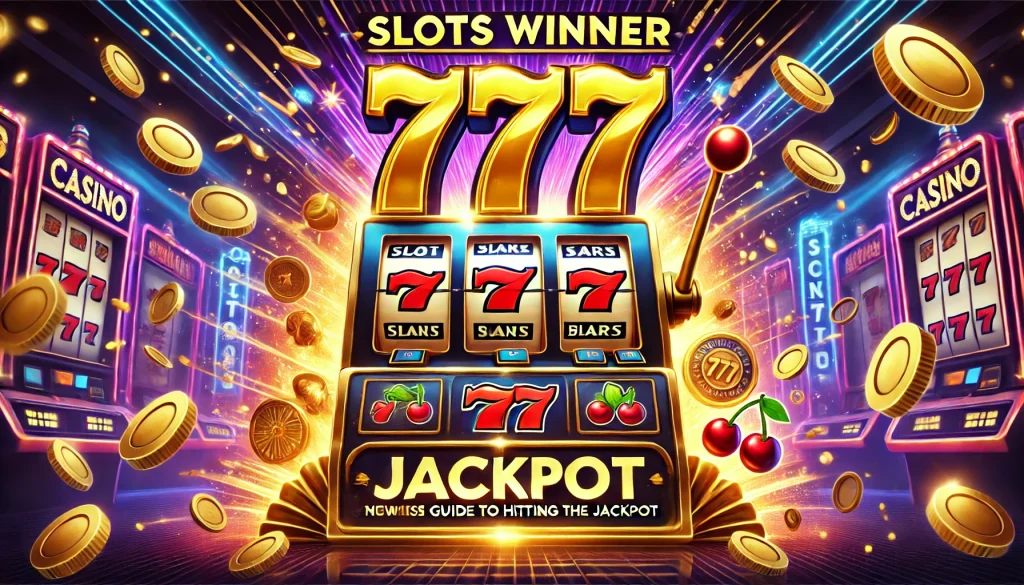
Often called “one-armed bandits,” slot machines are a common sight in casinos all over the world, enthralling players with their eye-catching lights, captivating sounds, and the prospect of winning big. The fundamental idea behind slot machines is straightforward: players place money, spin the reels, and hope to find winning symbol combinations. Since their invention in the late 19th century, the mechanisms underlying these machines have undergone substantial change, evolving from mechanical devices with physical reels to complex digital systems driven by random number generators (RNGs). The reels, paylines, & symbols are the basic parts of a slot machine.
While paylines are the lines that form winning combinations, reels are the vertical sections that spin when they are activated. A wider range of winning combinations is possible with modern video slots, which can have multiple paylines—up to 100 at times. Symbols range greatly, from classic fruit icons to images and characters with a theme that complements the game’s plot.
The payout is determined by the combinations of these symbols, each of which has a distinct value. Players who want to successfully navigate the world of slot machines must comprehend these components. Apart from conventional slots, there are also progressive jackpot machines, which allow a lucky player to win a bigger jackpot by accumulating a portion of each wager. Because these jackpots can reach incredible sums—often in the millions—they are especially alluring. For many players, the prospect of striking it rich is a powerful lure. But it’s important to understand that even though there is a chance for big payouts, the player usually has the odds stacked against them.
Because slot machines have an inherent house edge, the casino will always win in the long run. Even though slot machines are mostly games of chance, players can use certain tactics to improve their gameplay and possibly boost their winnings. Selecting machines with higher payout percentages—also known as Return to Player (RTP) rates—is one efficient strategy. The amount of money that a machine theoretically returns to players over time is known as its RTP.
For example, a slot machine with a 95 percent RTP should eventually pay out $95 for every $100 wagered. To increase their chances of winning, players should look for machines with RTPs higher than 95%. Understanding the volatility of various slot machines is another tactic. The risk involved in a given game is known as volatility; slots with high volatility may pay out more but have fewer wins, whereas slots with low volatility have more frequent but smaller wins. In order to select machines that suit their gaming style, players should evaluate their risk tolerance. Players who are risk-takers & seek excitement, for instance, might favor high volatility slots, whereas those who want a more consistent flow of smaller wins might choose low volatility options.
The bonuses and promotions that casinos provide should also be utilized by players. Numerous businesses provide loyalty benefits, deposit matches, or free spins that can greatly increase gameplay without requiring further cash outlays. Making use of these deals can improve the whole experience & increase winning chances without raising risk. Prior to playing, it’s a good idea to become familiar with the particular features and rules of each game; knowing about bonus rounds, wild symbols, & scatter symbols can help you optimize your chances of winning. Players should take into account a number of factors in addition to pure luck in order to improve their chances of winning a jackpot on a slot machine.
Choosing the appropriate machine is a crucial component. Slot machines with progressive jackpots frequently have greater payouts, but higher wagers are necessary to be eligible for the jackpot. Players should evaluate their financial situation to see if they can afford to play these machines on a regular basis. Also, some casinos have particular machines that are known to pay out more frequently; players can find more advantageous options by researching or asking staff about popular machines.
Playing when there are fewer players around, during off-peak hours, is another strategy to increase your chances. Although this may seem counterintuitive given that slot machines don’t depend on player activity, some people think that they might be set up to pay out more when fewer players are playing during slower periods. Despite being anecdotal and lacking empirical support, many players firmly believe that this is a strategy worth attempting. Also, maximizing chances may also depend on your ability to comprehend when to play. Players should refrain from increasing their bets in an attempt to chase losses after losing streaks, as this frequently results in more losses rather than recovering from them.
Rather, discipline during play can be maintained by establishing clear goals for wins & losses. A player should think about cashing out instead of playing in the hopes of winning big, for example, if they reach a predefined win amount or lose a specific percentage of their bankroll. Anyone hoping to play slots without getting into financial trouble needs to manage their bankroll well. Before playing, a budget must be created; it should include a sum that can be lost without affecting one’s personal finances or commitments.
It is crucial to adhere strictly to a budget once it has been established. Players shouldn’t take money out of their savings or use it for necessities. The “divide and conquer” strategy is one useful way to manage bankrolls. This entails dividing the overall spending into more manageable amounts for every gaming session.
A player might set aside $50 per week for four sessions, for instance, if they have $300 set aside for slots over the course of a month. This tactic not only aids in cost containment but also permits longer playtime spread over several sessions. The gaming experience can also be improved by placing restrictions on wins & losses. Gamers should decide ahead of time how much they are prepared to lose in a single session and adhere to that cap. In a similar vein, setting a win limit—the sum at which they will cash out—can help players resist the urge to keep playing after they have made sizable wins.
By following this procedure, players are less likely to risk everything in hopes of winning even bigger payouts and instead leave the casino with some winnings. Slot machine gaming psychology is intricate and multidimensional, involving a range of elements that affect player behavior and decision-making. The behavioral psychology principle of intermittent reinforcement, which explains why players frequently return to slot machines even after losing, is one important component. In contrast to games with predictable results, slot machines offer rewards that are unpredictable; this unpredictability breeds excitement and anticipation, which may encourage extended play.
When it comes to psychologically involving players, slot machine design is also very important. An immersive experience that evokes positive feelings is produced by vibrant colors, captivating sounds, and joyful animations upon winning. Dopamine, a neurotransmitter linked to pleasure and reward, can be released in the brain in response to these sensory cues, which strengthens the urge to play even after losses. Many players find it difficult to leave a machine after winning or even after losing multiple times, which is explained by this phenomenon.
Also, the psychology of slot machine gaming is greatly influenced by social factors. The social setting of casinos, where they can exchange stories or watch other players win big, appeals to a lot of players. A sense of community and increased enjoyment can result from this social interaction between players.
Also, casinos’ marketing tactics frequently highlight social proof, such as displaying winners or advertising large payouts, which can further persuade people to try their luck at slot machines. By being aware of these psychological factors, gamers can make better decisions. By understanding how emotions & external circumstances impact behavior, people can create plans to curb impulsive behavior and keep control of their gaming experiences.




